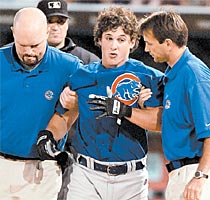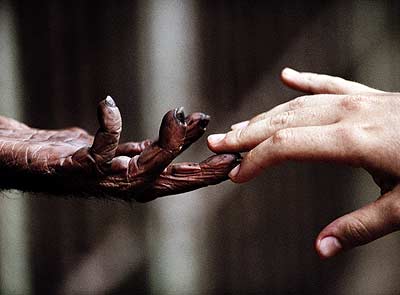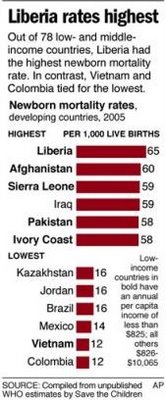 By Spyros Andreopoulos
By Spyros Andreopoulos
A mumps outbreak of more than 1,000 cases in Iowa and six neighboring midwestern states, and their possible link to two infected airline passengers, exemplifies the ever-present threat of contagious diseases and raises new concerns about recycled cabin air as a source of spreading disease during flights.
Past reported outbreaks aboard commercial aircraft have included Severe Acute Respiratory Syndrome (SARS), tuberculosis, measles, influenza and smallpox. SARS aboard Air China Flight 112 in 2003 showed that we still have much to learn about how viruses are transmitted in airline cabins because the disease was spread to as many as 25 passengers. During the SARS epidemic, in which some 8,000 people in more than two dozen countries got sick and 812 died, the United States reported 192 suspected SARS cases among internationalair travelers, according to the World Health Organization. Eight cases showed positive laboratory evidence of infection, and there were five deaths. Canada reported 251 probable cases, and 38 deaths.
Despite evidence that proper ventilation within confined spaces is
critical in reducing the spread of contagious diseases, there has been little study of medical issues related to behavior of micro-organisms in cabin environments. As air travel increases and the population ages, the number of medical events aboard commercial aircraft will get worse. Computer models indicate that doubling the ventilation rate can cut the risk of infections in half.
There was a time when airline passengers breathed fresh air that
circulated through the cabin every three minutes. In the mid-’80s the airlines, in an attempt to boost fuel economy, redesigned the ventilation systems for planes so that instead of 100 percent fresh air they use 50 percent fresh air and 50 percent recirculated air. Critics claimed that recycled air made people uncomfortable and often very sick. Congress has debated the issue with no resolution because of doubts that fresh air in an airline cabin would have any effect. Conventional wisdom is that any risk of contracting a viral infection is related to the proximity of the infected source, which might be little comfort if you are seated next to someone with a hacking cough or explosive sneeze. At least in this regard, airplanes are not much different from other forms of mass transit. But in an airplane, passengers don’t have the option of leaving the flight in midair.
Some airlines have moved on their own to improve cabin air-quality standards, including installation of high-efficiency particulate filters (HEPA). Filtering of cabin air to reduce exposure of infectious particles is established in the scientific literature and supported by the medical community. But carriers are not required to use HEPA filters, and there are serious gaps, thus many air passengers are breathing unfiltered air. A 2005 U.S. General Accounting Office survey of major U.S. air carriers found that 15 percent of large commercial aircraft that recirculate cabin
air and carry more than 100 passengers did not use HEPA filters. The number in smaller regional commercial fleets approached 50 percent. At congressional hearings a year ago, witnesses testified that regulations requiring HEPA filters for all aircraft that utilize recirculated air should be considered.
The Flight Attendants Association, representing 40,000 members, and
otherorganizations has asked Congress to require the Federal Aeronautics
Administration (FAA) to set a high standard for in-flight air quality. Germs are not the only concern of flight attendants. Studies have reported instances of increased carbon-monoxide levels in aircraft cabins causing headaches and even brief loss of consciousness in passengers during long flights.But with airlines facing severe economic pressures, these issues do not seem to be a high priority on FAA’s agenda , as the necessary study has dragged on for years.
Advice on what travelers can do to protect themselves from infection
during flights remains good personal hygiene. Dr. Lucy Tompkins, professor and chief of infectious diseases and geographic medicine at the Stanford University School of Medicine, for example, advises passengers to wash their hands frequently, particularly before eating, to cover their nose and mouth when sneezing or coughing, and to wash their hands afterward to protect others.
Colds (rhinoviruses) are usually transmitted from droplets spread via sneezing or picked up from contaminated surfaces, such as an armrest or a washroom basin.
Short of wearing a mask on the plane, Tompkins says, hand hygiene is the only avenue for a passenger to protect against infections that can be transmitted from surface contamination. She recommends the use of alcohol gels for hand hygiene.
Air travel is allowing diseases that once took years to spread from
continent to continent to move as quickly as a transatlantic flight.
Solutions will depend on renewed commitment to research that brings
together talents from aircraft engineering, computer science, mathematics, epidemiology, infectious diseases, immunology, ventilation technology and other fields. They require international collaboration in surveillance of emerging infectious diseases, which currently is discouraged by fears of bioterrorism and government policies that restrict involvement of foreign citizens and communication of scientific information. They require educating the public on the importance of immunization, good hygiene and
even cough etiquette.
Unless we develop a shared culture of awareness and responsibility about what needs to be done, and Congress adopts unambiguous policies to help the public-health professionals who are trying to minimize this threat, we will be facing continuing problems with each developing crisis.
S
pyros Andreopoulos is a science writer and director emeritus of the
Office of Communication and Public Affairs at the Stanford University
School of Medicine. The article represents his opinion alone.———————————————————————————————————
Copyright 2006 SF Chronicle





































